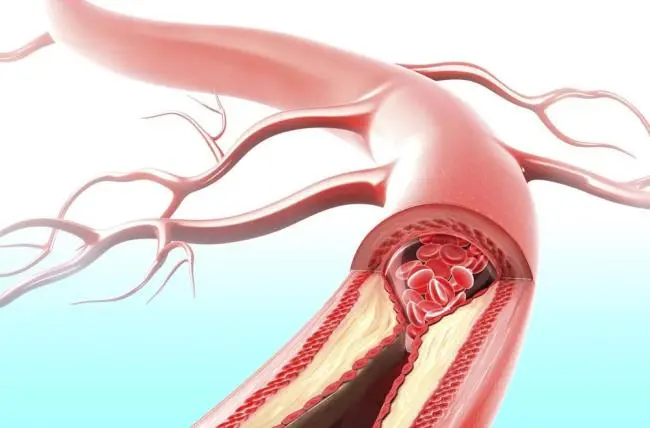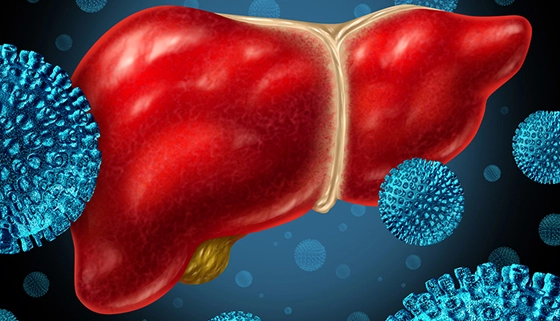Is OCD obsessive compulsive disorder genetic

If you tested your DNA with a personal genomics service like 23andMe, AncestryDNA, FamilyTreeDNA, MyHeritage or another testing company, you can learn more about your risk factors for hundreds of diseases. By clicking the button above ⬆️, you can upload your raw DNA data file and receive a personalized 250-page health report with research links that is the most comprehensive.
Obsessive-compulsive disorder (OCD) is a mental health condition characterized by features known as obsessions and compulsions. Obsessions refer to intrusive thoughts, mental images or urges that compel an individual to perform specific actions. Although these obsessions can vary extensively, they often include fear of illness or contamination; a desire for symmetry or getting things "just right;" or intrusive thoughts involving religion, sex, or aggression. On the other hand,true text Compulsions involve repetitive performance beholden certain behaviors such checking and verifying,washing,counting,arranging ,acting out specific routines,and seeking assurance.These acts aim at relieving anxiety ((comma needed)) rather than serving pleasure like gambling,eating hurriedly,kleptomania etc
Although almost everybody experiences obsessive feelings and compulsive behaviors at times or in specific situations, with OCD they last for more than an hour each day and lead to issues at work, school, or socially. Those individuals suffering from OCD typically feel anxiety and other distress due to their need of catering towards their obsessions or compulsions.
Obsessive-compulsive disorder (OCD) is a severe psychiatric illness that affects around 2% of both children and adults' populations. Family aggregation studies have demonstrated OCD's familial nature, while twin studies show that its heredity partly results from genetic factors.
Obsessive-compulsive disorder (OCD) can be hereditary, yet it does not necessarily mean that you will acquire the condition if a family member has it. Environmental factors also significantly contribute to its development, and both genetic predisposition and environmental influences play an interactive role in determining whether or not you may develop OCD at some point. Continue reading to discover more about how genes might affect your chances of developing OCD and how these elements could interact with various risks present in your surroundings.
Follow the link of the selected polymorphism to read a brief description of how the selected polymorphism affects Obsessive-compulsive disorder (OCD) and see a list of existing studies.
SNP polymorphisms related to the topic Obsessive-compulsive disorder (OCD):
| rs1799913 | Variants in the tryptophan hydroxylase gene involved in the development and treatment of opiate, heroin and cocaine addiction. |
| rs6313 | TPH-2 polymorphisms affect response to treatment with antidepressants and SSRIs. |
| rs4570625 | The TPH2 gene variant is associated with attention-deficit/hyperactivity disorder. |
| rs4680 | The study showed a 10% increase in total plasma homocysteine (tHcy) |
| rs25531 | The serotonin transporter rs25531 polymorphism is associated with neuroticism, depression, OCD, ADHD and autism spectrum disorder. |
| rs6314 | The serotonin receptor gene HTR2A polymorphism is associated with bipolar affective disorder and autism spectrum disorder. |
| rs1805476 | The glutamate receptor gene GRIN2B associated with reduced glutamatergic concentration in the anterior cingulate cortex in obsessive-compulsive disorder in children. |
| rs17110563 | The gene breakage is linked to bipolar affective disorder. |
| rs1125394 | The DRD2 polymorphism modulates reward and emotion processing, dopamine neurotransmission, and openness to experience. |
| rs167771 | The dopamine receptor-3 (DRD3) gene is associated with specific repetitive behaviours in autism spectrum disorders. |
| rs4648317 | Tendency to higher nicotine dependence, increased impulsivity and thrill-seeking. |
| rs6305 | Serotonin transporter and serotonin receptor gene polymorphisms are associated with susceptibility to substance abuse. |
| rs3742278 | Serotonin receptor gene HTR2A polymorphism is associated with panic disorder features. |
| rs1928040 | Polymorphisms of the gene encoding serotonin 2A receptor affect response to antidepressant treatment. |
| rs6265 | Increased risk of ADHD or depression. Slightly faster decline in mental abilities in patients with Alzheimer's disease. The presence of this BDNF polymorphism is associated with differences in brain motor system functioning, altered short-term plasticity, and greater error in short-term motor learning. |
| rs890 | Glutamate receptor gene (GRIN2B) associated with reduced glutamatergic concentration in the anterior cingulate gyrus in obsessive-compulsive disorder in children. |
| rs6311 | Genetic factors specific to obsessive-compulsive disorder. |
| rs2283265 | Functional variants of the dopamine receptor gene are a potential factor in neuropsychiatric disorders. |
| rs1062613 | Fear reactivation and symptoms of combat-related PTSD: specificity and preliminary study of the effect of the 5-HT3A receptor gene. |
| rs25532 | Each C rs25532 allele accounts for increased serotonin transporter function and is pathogenetically associated with OCD. |
| rs1176713 | Common variants of the HTR3 gene are associated with obsessive-compulsive disorder. |
| rs9325202 | Breakage of the tryptophan hydroxylase gene promotes dishonest behaviour. |
| rs1843809 | Breakage of the tryptophan hydroxylase 2 (TPH2) gene associated with attention deficit hyperactivity disorder. |
| rs7997012 | Associations of the serotonin receptor gene HTR2A with bipolar disorder and major depressive disorder. |
| rs7224199 | Association with major depression and response to antidepressants. The polymorphism is associated with selective serotonin and serotonin-norepinephrine reuptake inhibitor response in depressive disorder. |
| rs3780412 | Association of the glutamate transporter gene SLC1A1 with atypical obsessive-compulsive symptoms induced by neuroleptics. |
| rs2228622 | Association between the SLC1A1 gene and early onset of obsessive-compulsive disorder. |
| rs301443 | Association between the glutamate transporter gene SLC1A1 and early onset of obsessive-compulsive disorder. |
| rs6277 | Associated with a 1.6-fold increased risk of schizophrenia. |
| rs140700 | A variant of the serotonin transporter gene (SLC6A4) is associated with suicidal behaviour in schizophrenic patients. |
| rs28914829 | A polymorphism in the serotonin transporter locus (SLC6A4) predisposes to autism and compulsive rigid behaviour. |
| rs3087879 | A haplotype containing quantitative trait loci of SLC1A1 gene expression is associated with obsessive-compulsive disorder. |
| rs16965628 | A genetic polymorphism of the serotonin transporter gene, SLC6A4 rs16965628, is associated with obsessive-compulsive disorder. |
| rs2066713 | A functional serotonin transporter gene polymorphism is associated with major depression, schizophrenia and ADHD. |
| rs27072 | 2-fold risk of severe alcohol withdrawal. Associated with more severe symptoms after alcohol withdrawal, such as seizures and white fever. Possible increased chance of ADHD. |
| rs1057519438 | |
| rs9499708 | |
| rs3737193 | |
| rs1232487 | |
| rs3177118 | |
| rs116567227 | |
| rs1805088 | |
| rs10835210 | |
| rs9652236 | |
| rs10974587 | |
| rs10974584 | |
| rs3780415 | |
| rs7022772 | |
| rs7848533 | |
| rs16921385 | |
| rs301430 | |
| rs7298664 | |
| rs737866 | |
| rs61888800 | |
| rs5993883 | |
| rs769224 | |
| rs2039290 | |
| rs1081003 | |
| rs4764011 | |
| rs6267 | |
| rs9567737 | |
| rs12579598 | |
| rs2160734 | |
| rs10814991 | |
| rs2268102 | |
| rs7124442 | |
| rs4742007 | |
| rs12583882 | |
| rs9332377 | |
| rs165631 | |
| rs9332316 | |
| rs56232120 | |
| rs17834128 | |
| rs35815285 | |
| rs1806202 | |
| rs2300252 | |
| rs10879346 | |
| rs4565946 | |
| rs10748189 | |
| rs6296 | |
| rs211107 | |
| rs676643 | |
| rs10499905 | |
| rs28371725 | |
| rs10232398 | |
| rs220597 | |
| rs1805502 | |
| rs1568214 | |
| rs849876 | |
| rs1019385 | |
| rs737865 | |
| rs7297761 | |
| rs2150195 | |
| rs3773678 | |
| rs9824856 | |
| rs4460839 | |
| rs11214606 | |
| rs2734838 | |
| rs3776512 | |
| rs460000 | |
| rs2617605 | |
| rs28363168 | |
| rs11657536 | |
| rs9316232 | |
| rs3780413 | |
| rs297941 | |
About The Author
Li DaliLi Dali, a National Foundation for Outstanding Youth Fund recipient, is a researcher at the School of Life Sciences in East China Normal University. He earned his PhD in genetics from Hunan Normal University in 2007 and conducted collaborative research at Texas A&M University during his doctoral studies. Li Dali and his team have optimized and innovated gene editing technology, leading to the establishment of a world-class system for constructing gene editing disease models.


